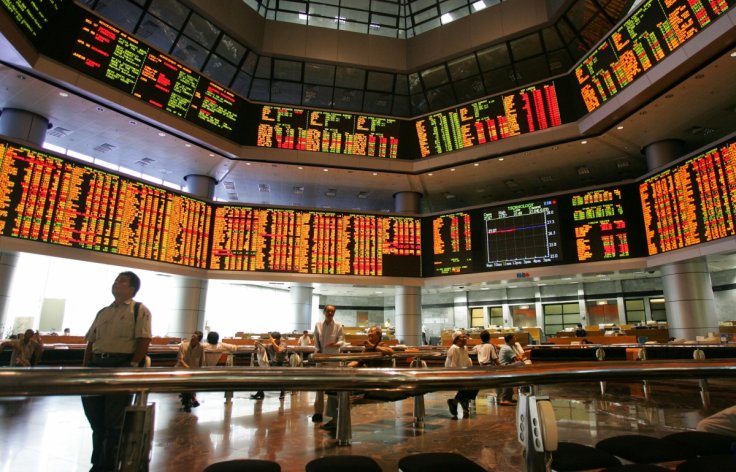Asian shares fell on Wednesday as a spike in new Chinese virus cases sent Hong Kong stocks tumbling and added to worries about the economic impact of the outbreak. But there were some signs that global financial markets may be regaining their composure after days of heavy selling sparked by the epidemic.
European futures rose 0.22 percent in early trading and US stock futures were up 0.27 percent. Chinese stock futures in Singapore rebounded from two days of losses to rise 1.79 percent, the biggest gain in almost seven weeks.
MSCI's broadest index of Asia-Pacific shares outside Japan fell 0.41 percent. But most of the losses were confined to Hong Kong shares, which sank 2.4 percent on their first session after two-and-a-half trading daybreak for Lunar New Year, led by declines in financial services, real estate, and consumer goods companies as a growing number of firms warned they may take a hit from the China virus.
Nikkei stock index rose 0.62 percent

Japan's Nikkei stock index rose 0.62 percent, and Australia's main index added 0.53 percent, partly because investors in these markets had already had a chance to react to the outbreak, which has claimed more than 100 lives.
Oil futures built on gains in Asia after OPEC sources said the cartel wants to extend crude output cuts by three months to June, easing concern about excess supplies. US Treasury yields remained higher and safe-haven currencies held steady in a sign of some calm in financial markets, but the focus remained squarely on the virus and how investors would re-price riskier assets.
"The next three to five days will be maximum selling pressure because essentially markets had a benign view of the virus before the Lunar New Year," said Sean Darby, global equity strategist at Jefferies in Hong Kong. "Until the rate of cases starts to peak, markets are not likely to bounce."
S&P 500 rose 1.01 percent on Tuesday
The S&P 500 rose 1.01 percent on Tuesday, rebounding from its worst daily decline in four months on Monday, as shares of Apple Inc rose ahead of its fourth-quarter results. After the market close, Apple reported better-than-expected profits for the fourth quarter and forecast revenue in the current quarter above Wall Street expectations, which lifted some Asian tech shares.
The yield on benchmark 10-year Treasury notes rose to 1.6545 percent versus a yield of 1.5821 percent on three-month Treasury bills in another sign that sentiment has stabilized. The yield curve briefly inverted on Tuesday when 10-year yields fell below their 3-month counterparts for the first time since October. An inverted yield curve has historically been an indicator of looming recession.
Some investors were on the sidelines before the US Federal Reserve meeting later on Wednesday. The Fed is expected to reiterate its desire to keep rates unchanged at least through this year, though some analysts wonder if it could be shaken off autopilot if the virus outbreak deepens.
Yen quoted at 109.14 per dollar
In currency markets, the safe-haven yen was quoted at 109.14 per dollar following a 0.2 percent loss on Tuesday. The Swiss franc, another popular safe-haven, traded at 0.9742 versus the dollar, close to its lowest in almost three weeks.
In the offshore market, the yuan was little changed at 6.9620 per dollar but was not far off a one-month low hit earlier this week. China's onshore markets are closed for the Lunar New Year holidays and will resume trading on February 3.
US crude rose 1.25 percent to $54.17 a barrel. Brent crude climbed 1.28 percent to $60.27. OPEC wants to extend current oil output cuts until at least June from March, with the possibility of deeper reductions on the table if oil demand in China is significantly impacted by the spread of the new coronavirus, OPEC sources said.
Sterling edged lower to $1.3022, on course for its fifth day of declines due to worries about Britain's trading relationship with the European Union. Investors are also cautious ahead of a Bank of England policy decision on Thursday, which many analysts say is too close to call.








